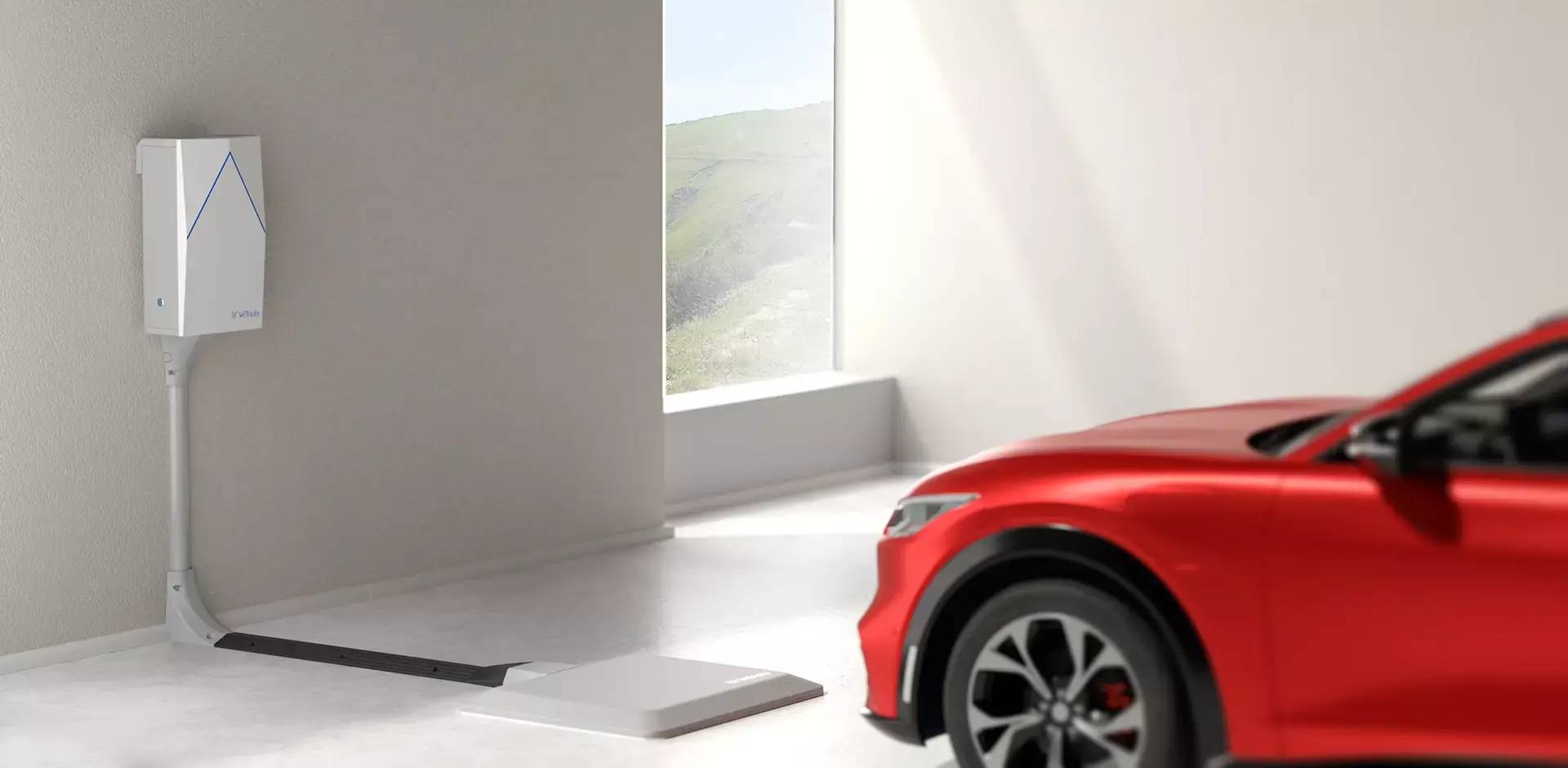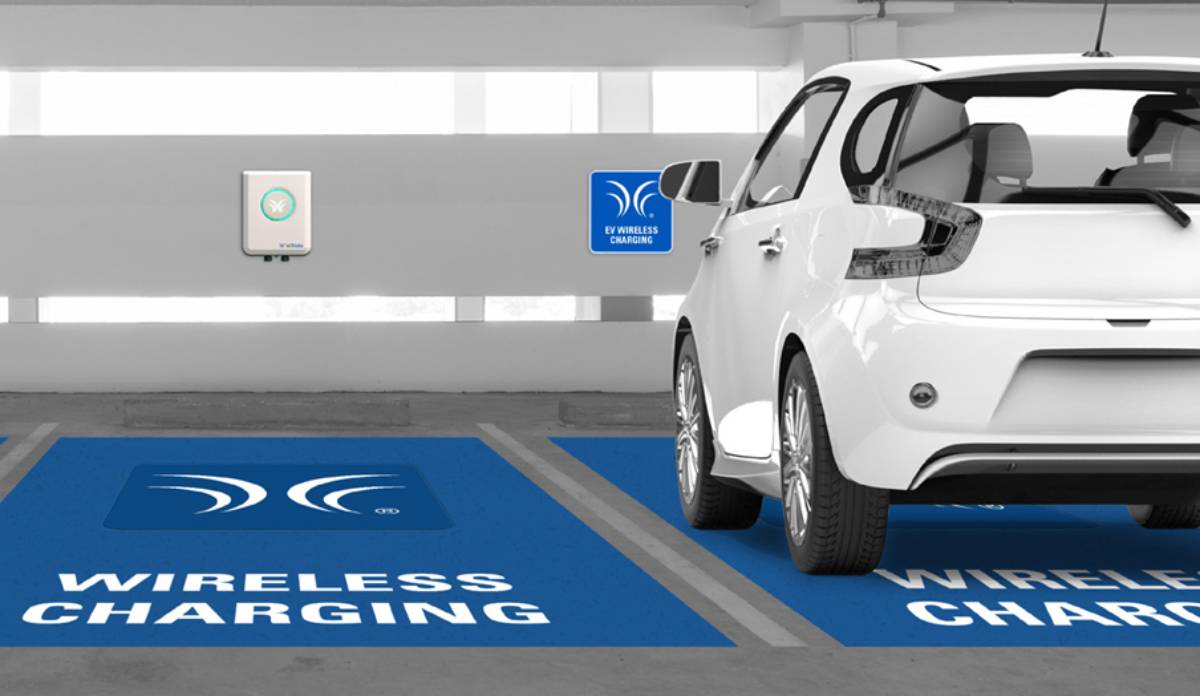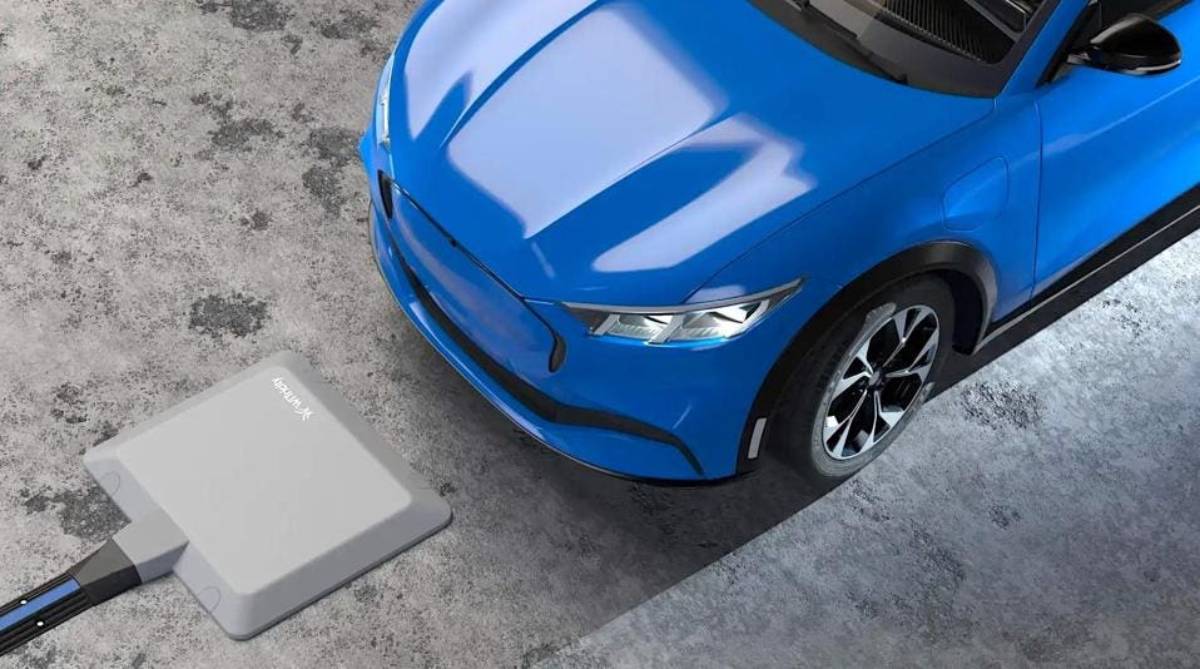
Wireless EV Charging: Is It the Future?
Electric vehicles (EVs) are racing into the spotlight as our planet embraces cleaner transportation. Yet, for EV owners, one roadblock looms large: charging. Traditional plug-in stations can feel like tangled vines—cumbersome and occasionally inconvenient. Enter wireless EV charging, or inductive charging, which promises to revolutionise the game by eliminating the need for cumbersome cables.
In this blog, we’ll delve into the magic behind wireless EV charging. We’ll uncover its benefits, navigate its challenges, and ponder whether it can truly steer the future of electric vehicle charging.
How Wireless EV Charging Works

Understanding Inductive Charging Technology
Wireless EV charging dances to the rhythm of electromagnetic fields, gracefully transmitting energy from a charging pad nestled on the ground to a receiver tucked inside your vehicle. This effortless ballet, known as inductive charging, sweeps away the hassle of cables and plugs.
The Charging Process
- Picture a charging pad installed at home, in parking spaces, or along public roads.
- Each electric vehicle sports a receiver that flawlessly aligns with its charging pad.
- As the vehicle parks above the pad, an electromagnetic field springs to life, transferring energy wirelessly.
- The receiver transforms this unseen energy into electricity, fueling the battery’s charge.
Types of Wireless EV Charging
- Static Wireless Charging: The vehicle remains stationary, soaking up energy from the charging pad.
- Dynamic Wireless Charging: The vehicle powers up while gliding over embedded charging pads on the road, like a seamless symphony of energy on the move.
Benefits of Wireless EV Charging
Convenience and Ease of Use
One of the biggest advantages of wireless EV charging is its convenience. Drivers do not need to plug in their vehicles manually. Simply parking over a charging pad starts the process, making it effortless.
Diminished Deterioration
Without physical connectors in the mix, charging cables and ports experience far less wear. This boosts the lifespan of your charging system, allowing it to thrive longer.
Elevated Safety
Say goodbye to tripping hazards; wireless charging banishes pesky cables from your path. It also minimises electrical risks, making it a stellar solution for public and bustling spaces.
Synergy with Self-Driving Vehicles
As autonomous vehicles gear up for the spotlight, wireless charging paves the way for hands-free power-ups. This cutting-edge technology is vital for the evolution of self-driving transportation.
Weather Warrior
While traditional charging stations may bow to rain and snow, wireless systems stand strong against the elements. With fewer exposed components, they laugh in the face of inclement weather.
Challenges of Wireless EV Charging

Efficiency and Charging Speed
Currently, wireless charging is not as efficient as wired charging. Energy loss occurs during transmission, making it slower than traditional charging methods. Many existing wireless chargers provide lower power levels, meaning charging times are longer compared to fast chargers.
High Installation Costs
Installing wireless charging systems requires significant infrastructure changes, including embedding charging pads into roads or parking lots. This makes initial setup costs much higher than conventional charging stations.
Limited Availability
Wireless charging technology is still in its early stages, and only a few locations currently support it. Widespread adoption will require large-scale investments and collaboration between governments and private companies.
Compatibility Issues
Different manufacturers may use different wireless charging technologies, making standardisation a challenge. If EV manufacturers do not adopt common standards, vehicles may not be compatible with all wireless charging stations.
Energy Loss
Wireless charging is less energy-efficient than direct plug-in charging. Some energy is lost during transmission, which can lead to higher electricity consumption over time.
The Future of Wireless EV Charging
Ongoing Research and Development
A chorus of companies and institutions are innovating in wireless charging tech. Fresh breakthroughs are designed to boost efficiency and cut costs. High-power wireless chargers are vying to outpace their fast-charging rivals.
Government and Industry Support
Governments and auto titans are ramping up investments in wireless charging solutions. Some cities are testing dynamic wireless roads, enabling EVs to recharge on the go. If this proves successful, it could transform the entire powering landscape.
Potential Applications
- Public Transport: Buses and taxis could thrive with wireless charging at stops.
- Smart Cities: A web of wireless charging infrastructure could create seamless EV ecosystems.
- Commercial Fleets: Delivery and logistics firms could use wireless charging to eliminate downtime.
Conclusion
Wireless EV charging could revolutionise how we energise electric vehicles. Imagine a world where charging is as effortless as simply parking. Yet, hurdles like efficiency, cost, and infrastructure need addressing. Thankfully, ongoing advancements are paving the way to this seamless future.
For the time being, traditional plug-in charging reigns supreme in practicality. However, wireless charging technology is steadily evolving, shedding its growing pains. With increased investments and robust standards, the dawn of widespread adoption is on the horizon. Embrace the charge; a new era in vehicle power is approaching!
Would you consider switching to wireless charging for your EV? Share your thoughts in the comments!


